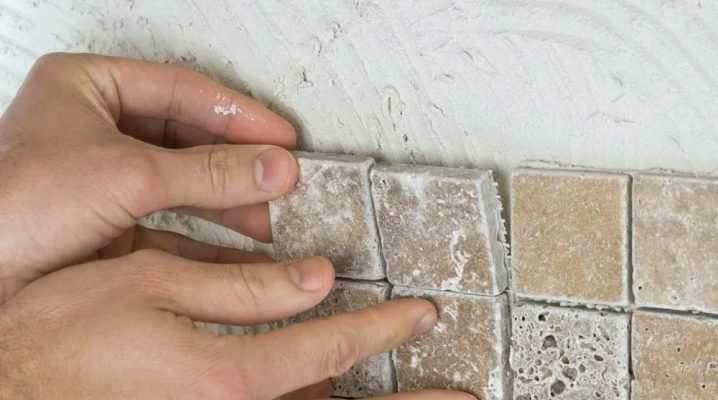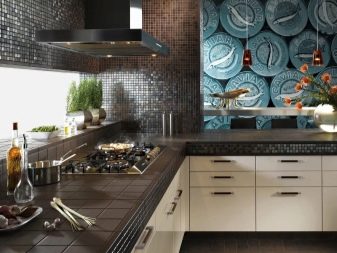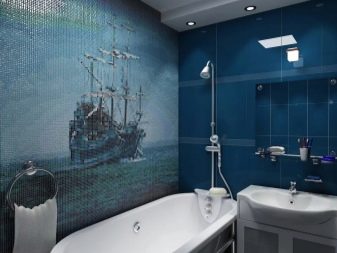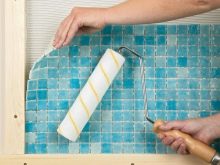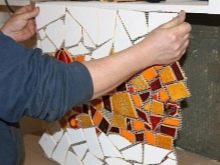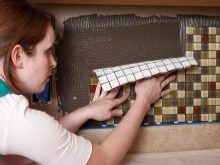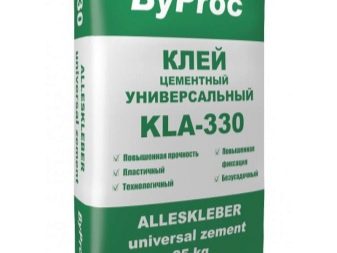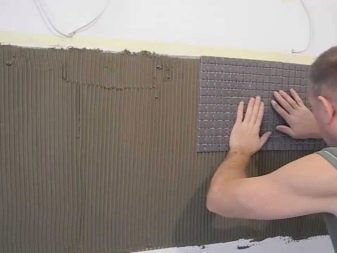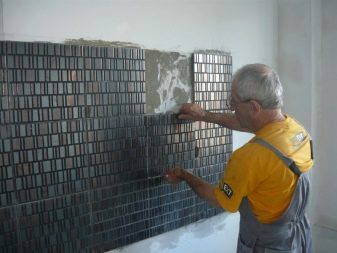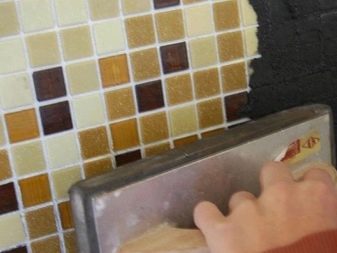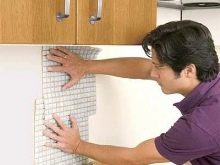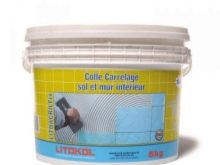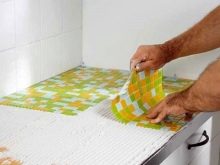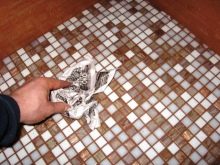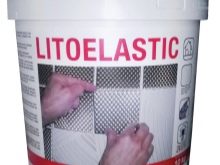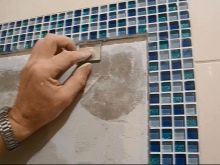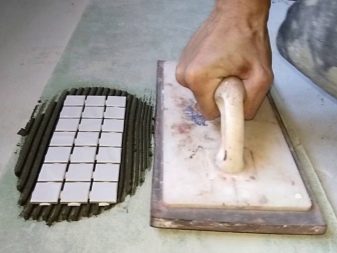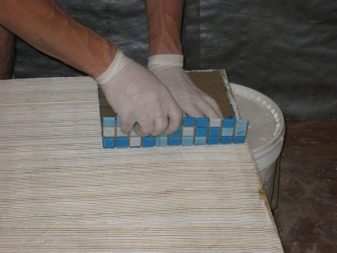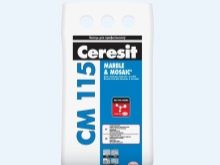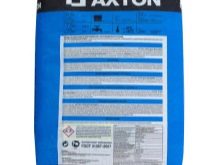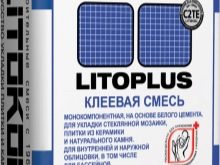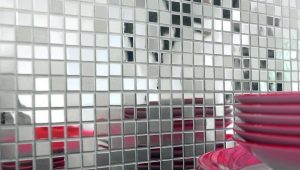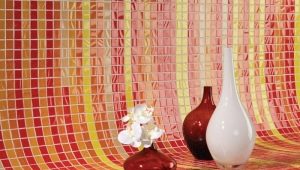Types of tile glue for mosaic: how to choose?
Most of the owners are trying to arrange their homes so that they look original and beautiful. The facing mosaic with its unlimited decorative possibilities will help to achieve such results.
How high-quality and durable this interior will be depends on the choice of the type of tile adhesive, since it is this one that ensures the reliability of fixation of each mosaic fragment.
Mosaic types
- Ceramic the mosaic is unpretentious in laying, so you can restrict yourself to cement tile glue.
- Mosaic from natural stone often sensitive to moisture - it depends on the type of stone. Natural rocks are often sensitive to moisture, so a quick-hardening reactive cement glue is suitable for laying them. If natural stone is insensitive to water, then any elastic composition will do.
- Glass the mosaic has a transparent or translucent base, through which the laying surface will be visible, therefore for its installation it is better to use elastic adhesive of white color.
Types of tile glue
The type of tile glue plays a major role in the process of laying mosaic, because it depends on how it will hold the material on the surface of the base.
From its large abundance, there are three main types:
- cement;
- dispersive;
- reactive.
Cement glue is a dry mix with the addition of white or gray cement. To prepare such a mass, an aqueous or latex base is used. In the finished form, the cement composition is rigid, elastic and highly elastic.
Hard glue is suitable for:
- facing a flat and clean surface with a mineral base;
- brick and plastered surfaces;
- working surface of aerated and foam concrete blocks;
- screed cement or concrete.
Its main advantage is low cost.
Elastic and highly elastic compositions are ideal for surfaces that do not absorb moisture or are regularly exposed to temperature changes.A deformable (highly elastic) version is suitable for rooms subject to high vibration, since its highly elastic composition easily compensates for vibrations.
Dispersive (ready) tile adhesive has a one-component composition. It is convenient for use in small rooms, as well as economical. At the end of the work, it is sufficient to simply tightly close the container with the residual glue until the next application, since the prepared mixture is not subject to drying and loss of quality. In addition, it is ideal for places with low load and low humidity (apron in the kitchen, bathroom walls or corridor). The high cost of such glue is justified by good quality and ease of use.
Reactive (two-component) tile composition is obtained as a result of a chemical reaction from the interaction of the base and hardener, so it dries quickly, becoming unsuitable for further use. It is not based on water - polyurethane and epoxide are often used, due to which this glue is ideal for fixing plastic, glass, wood, metal and natural stone.
To work with such a mixture it is necessary to have a great experience, since the installation requires speed and accurate application.
How to choose?
The main criteria when choosing tile adhesive for mosaic are:
- type and structure of the material of the mosaic and its substrate;
- type and structure of the surface of the mosaic;
- mosaic facing conditions (humidity level, temperature drops, vibration).
It is advisable to choose a moisture-resistant adhesive for mosaic tiles of such brands:
- Ceresit;
- Axton;
- Litokol.
On the intricacies of choosing glue for mosaic, see below.
